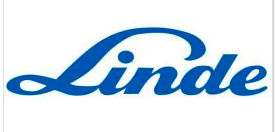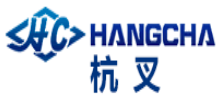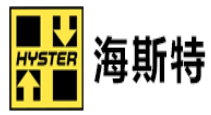Forklift Industries in China
Forklifts are industrial handling vehicles, which refer to various wheeled handling vehicles for loading and unloading, stacking and short-distance transportation of palletized goods.
Total Sales
According to statistics from the Industrial Vehicle Branch of the China Construction Machinery Industry Association, as of the end of 2017, the total sales of China’s motorized industrial vehicles (forklifts) were 496,738 units, a year-on-year increase of 34.23% compared to 370,067 units in 2016; 371,013 units were sold in the domestic market, compared to 2016, 267,851 units increased by 38.51% year-on-year.
Electric vs Combustion Forklift
In 2017, China’s forklift sales volume was 496,738, of which internal combustion forklift sales were 293,087 units, accounting for 59% of total sales; electric forklift sales were 203,651 units, accounting for 41% of total sales. The sales growth of electric forklifts has accelerated significantly. From the perspective of the sales structure of forklift products in recent years, the sales proportion of electric forklift products increased from 26.51% in 2011 to 41.00% in 2017; the sales proportion of internal combustion forklifts decreased from 73.49% in 2011 to 59% in 2017.
Industries
Since 2010, the competitive landscape of China’s forklift industry has been basically stable. In 2017, there were 13 industrial vehicle manufacturers with annual sales of more than 10,000 units, 21 industrial vehicle manufacturers with annual sales of more than 5,000 units, 30 manufacturers with annual sales of more than 3,000 units, and 34 manufacturers with annual sales volume exceeding 2000 units.
International & Domestic Market
In terms of the international forklift market, the sales market of forklifts is mainly concentrated in Asia, Europe and the Americas. World-renowned forklift manufacturers represented by Toyota from Japan, KION from Germany, Jungheinrich from Germany, Colon from the United States and Naco from the United States. With their strong capital, technical strength, obvious brand advantages, and a global distribution network, they are in a favorable position in the global forklift market competition.
In terms of China’s domestic forklift market, after years of development, the forklift industry has formed a relatively concentrated market and a two-tiered market structure. At present, there are about 150 forklift companies in the Chinese market. For low-end forklift products, the technical threshold is relatively low. Most of the companies have small production and sales scales. Companies such as Anhui Heli and Hangcha Group dominate the domestic market. In 2017, Anhui Heli and Hangcha Group always occupied the top two positions in China’s forklift market, accounting for about 45% of the market share in total.
Affected by the vigorous development of the domestic forklift market in recent years, it has attracted foreign industry giants and powerful domestic construction machinery companies and automobile companies to join in, making the domestic forklift market increasingly competitive and the industry has a high degree of marketization.
The following six brands are selected based on market sales, after-sales service and customer reviews over the years.

1, HELI
HELI belongs to Anhui Forklift Group Co., Ltd. It is a wholly state-owned company in Anhui Province. Founded in 1958, it is currently the largest industrial vehicle R&D, manufacturing and export base in China with the most complete industrial chain, the best comprehensive strength and economic benefits. Since 1991, the main economic indicators have ranked No. 1 in the same industry in the country for many consecutive years.
In 2009, it ranked among the world’s top eight industrial vehicles and became the only Chinese company to be selected as the world’s top ten. In 2011, it entered the Forbes China 500 and ranked 60th in the machinery industry. Ranked first in the industry in China and seventh in the world.
It has been in a leading position in the domestic forklift field for many years. It has established an overseas agency network in 80 countries and regions overseas, and its products are sold to 140 countries and regions in the world, of which Europe and the United States account for 60% of the company’s exports.
In 2013, the production and sales of complete machines exceeded 80,000 units, of which 10,000 were exported. In 2018, the sales of Heli forklifts in China’s forklift were 132,600 units, accounting for 22.2% of the total vehicle sales in the industry.
Heli forklifts strive for product humanized design, high efficiency and energy saving, strong power and high adaptability.

2, LINDE
Linde (China) Forklift Co., Ltd. was established in 1993 in Xiamen, Linde Material Handling in Asia is the production, sales, service, technology research and development base. Linde Material Handling, headquartered in Asafenburg, Germany, has branches in more than 100 countries around the world. Linde Material Handling is a member of KION Group. It is an integrated supplier of forklift equipment and internal logistics system solutions.
It has sales and service branches in more than 100 countries and major regions around the world. Linde (China) is committed to providing efficient material handling system solutions to the market, including a full range of counterweights and warehousing forklifts, professional all-round services, optimized material handling integrated solutions and logistics solution design and consulting.
The sales and service network covers 153 cities across the country, providing efficient and professional services to customers across the country. It is the first foreign brand in China’s forklift market. Their market share in China’s forklift trucks reaches 42%. The sales volume of electric forklifts ranks first in the Chinese market.

3, HANGCHA
HANGCHA, Hangzhou Forklift Group, formerly known as Hangzhou forklift truck production plant is a former State key enterprises, which was restructured into joint-stock enterprises in 2000. It is a leading enterprise in China’s forklift industry, a high-tech enterprise, and a key cultivation enterprise in Zhejiang’s equipment manufacturing industry.
It has now ranked among the top 12 manufacturers of material handling equipment in the world. Hangcha has a high-tech R&D center, a provincial-level technical center, a strong marketing service network composed of more than 60 sales and service-oriented subsidiaries, more than 140 domestic distributors, and more than 70 foreign distributors, providing high-quality product and service.
The company’s leading products are forklifts and other material handling equipment. It has formed a full series and multi-variety product structure of 1-25 tons of internal combustion forklifts, 1-5 tons of battery forklifts, tractors, warehousing and logistics equipment, etc. The products have been marketed all over the country and sell in more than 130 countries and regions. The product’s domestic market share reached nearly 30%, and exports accounted for 1/3 of the domestic motor forklift exports.
The sales volume of Hangcha Group’s products has been among the best in the industry for more than a decade, and has maintained the industry’s first export volume for ten consecutive years. According to the American “MMH Modern Material Handling Magazine” ranking global forklifts by sales, Hangcha Group ranks 8th in the world.

4. LONKING
Lonking (Shanghai) Forklift Co., Ltd. is a wholly-owned subsidiary of China Lonking Holding Co., Ltd. It quickly occupied the market with its excellent quality and outstanding price-performance ratio, and its marketing network and product users have spread all over China. There are more than 300 agents and service providers at all levels nationwide. The company has three assembly lines for battery forklifts, internal combustion medium and small tonnage forklifts, and internal combustion large tonnage forklifts, as well as three coating lines for structural parts, balance weight coating lines, and parts powder spraying lines.
All structural parts and components are used in advanced and high-efficiency CNC cutting machines, laser cutting machines, large CNC vertical machining centers, CNC pentahedron machining centers, welding robots and other imported equipment are processed and manufactured. It is one of the most sophisticated companies in the industry at home and abroad.
The company currently has 4 main categories of products, that is internal combustion forklifts, battery forklifts, port machinery equipment, and warehousing and logistics equipment, with nearly two hundred varieties. According to the American industry magazine Modern Mater Handling (MMH), the statistics of the “2017 In the global top 20 forklift supplier rankings”, Lonking Forklift ranks 13th overall. The domestic market share ranks among the top three in the industry for several consecutive years.

5. TOYOTA
Toyota Industrial Vehicle Group is the world’s leading manufacturer of forklifts. It’s parent company is the Toyota Industries Corporation and has three brands: TOYOTA, BT, RAYMOND with a full range of product lines. With its high-quality products and logistics services, Toyota Industrial Vehicle has extensively created matching logistics sites for customers in China, the United States, Japan, Europe and other places. Since the acquisition of the famous European forklift manufacturer BT in 2000, it has been in the leading position in global sales for 18 consecutive years.
Toyota Industrial Vehicles (Shanghai) Co., Ltd. is the general distributor of Toyota Forklifts in China. It was invested and established by Toyota Industries Corporation in 2003. Toyota Forklift already has a complete operating system in China including forklift production bases, sales and service centers, and provides all-round services to Chinese users. In 2007, Toyota Industrial Vehicles (Shanghai) Co. Ltd. officially launched the sales of BT products. Thereby bringing all its three major brands to China, allowing Chinese forklift users to experience three brands in one channel (Toyota, BT, Raymond) one stop shopping, one-stop all-round logistics service.
At present, in addition to the Shanghai headquarters, Toyota Industrial Vehicles has set up 3 direct sales branches in Tianjin, Guangzhou, and Dalian, and has 26 dealers, 65 sales outlets in 29 province cities across the country, and a production base in Kunshan.

6. HYSTER
In April 1999, Shanghai Hyster forklift manufacturing base (HYSTER CHINA) settled in Shanghai Pudong New Area.The Hyster China brand belongs to the Hyster-Yale Group of the United States and is a world-renowned professional forklift brand, large forklift and storage equipment provider.
Hyster Forklift currently has 14 production bases around the world, and has a market share of 25% in its birthplace, the United States. At present, there are more than 830,000 NMHG-produced forklifts in use worldwide. If you need material handling equipment that is durable, excellent in performance, and suitable for harsh working conditions, people will first think of Hyster, the world’s sturdy and durable forklift brand.
Hyster forklifts combine innovative design, industrial-grade strength components and high-tech manufacturing and testing technology. Hyster is one of the world-renowned forklift brands for more than 80 years. From large container handling forklifts and reach forklifts to dedicated storage forklifts, Hyster provides almost all types and specifications of industrial forklifts.
Through a global distribution network, it provides local response services and expert consultation, as well as a full range of forklift products and high-efficiency material handling solutions, thereby reducing costs and streamlining material circulation. Hyster produces a full range of forklifts, from counter balanced internal combustion/electric forklifts, storage forklifts to container handling trucks. There are more than 140 types (1-52 tons) of forklifts suitable for factories, warehouses, supermarkets, ports and terminals. Container terminals and special operations require such as the handling of dangerous goods, explosion-proof environments and cold storage operations.

